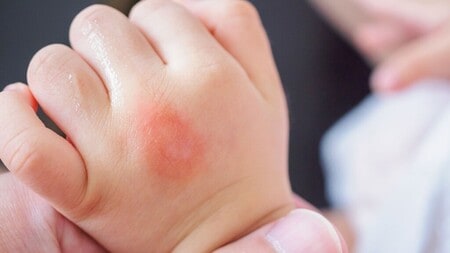Allergies are a common health concern that can affect people of all ages, including children. As a parent, it’s important to be able to recognise the signs and symptoms of allergies in your child. In this comprehensive guide, we will explore how you can tell if your child has allergies, the common symptoms to look out for, and the steps you can take to get your child tested for allergies.
How to Know if Your Child Has Allergies
Allergies in children are often more common than you may think. You may be surprised to hear that 40% of all children in the UK are officially diagnosed with having an allergy. The most common of which are hay fever, asthma, eczema or a food-based allergy.
When investigating whether or not your child has developed an intolerance, make sure you familiarise yourself with the common signs and symptoms of allergies. They are often categorised into five key groups.
1. Nasal Symptoms
- Persistent or recurrent sneezing
- Runny or congested nose
- Itchy nose or frequent rubbing of the nose
2. Eye Symptoms
- Red, itchy, or watery eyes
- Swelling around the eyes
- Sensitivity to light
3. Skin Symptoms
- Itchy skin or rash
- Hives (raised, red, and itchy bumps)
- Eczema flare-ups
4. Respiratory Symptoms
- Coughing, wheezing, or difficulty breathing
- Chest tightness or shortness of breath
- Recurrent respiratory infections or asthma exacerbations
5. Digestive Symptoms
- Nausea or vomiting
- Stomach Ache or cramps
- Diarrhoea or constipation
Getting Your Child Tested for Allergies
If your child is suffering from one or more of the symptoms above, it might be worth getting your child tested for allergies. At Midland Health, we have a simple three-step process to help you get an accurate answer either way.
1. Book a Consultation
First, schedule an appointment with our paediatricians or allergy specialists. They will be able to carry out an in-depth discussion taking into account your child’s symptoms, medical history, and any family history of allergies.
2. Allergy Testing Options
Next, based on your previous conversation, either of the two allergy testing options below will be selected.
- Skin Prick Test: Small amounts of common allergens are placed on your child’s skin to observe any allergic reactions
- Blood Test: Measures the presence of specific antibodies in your child’s blood to identify allergen triggers
3. Identifying Allergen Triggers
Once the tests are conducted, your healthcare provider will discuss the results and help identify specific allergens causing your child’s symptoms. You will receive information about the different allergy management options available to you and support throughout your decision-making process.
Managing Your Child’s Allergies
If your child has a positive allergy test, showing an intolerance, you will receive one or more of the following management methods.
Avoiding Allergens
- Create an allergen-free environment at home by regularly cleaning and dusting.
- Minimise exposure to common allergens such as pollen, pet dander, dust mites, and mould.
Medication
- Over-the-counter antihistamines can help alleviate mild allergy symptoms.
- Prescription medications may be necessary for more severe symptoms or specific allergies.
- For some children, immunotherapy treatments can also be offered.
Allergy Action Plan
- Work with your child’s healthcare provider to develop an allergy action plan detailing steps to manage and treat allergic reactions.
Education and Awareness
- Educate your child about their allergies and teach them to recognise and avoid potential triggers.
- Inform school staff and caregivers about your child’s allergies and necessary precautions.
Let Our Allergy Specialists Help
Recognising the signs and symptoms of allergies in your child is crucial for early detection and effective management. By understanding the common symptoms and taking the necessary steps to get your child tested for allergies, you can help ensure their well-being and quality of life. Remember to consult with healthcare professionals for accurate diagnosis, personalised treatment plans, and guidance on allergy management strategies. Book an appointment with our paediatric allergy specialists today.

